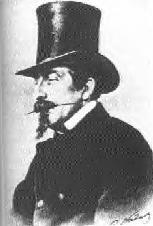Timothy Messer-Kruse’s The Yankee International: Marxism and the American Reform Tradition, 1848-1876 is an interesting book, documenting the history of the freewheeling American branch of the International Workingmen’s Association before the Marxists kicked the feminist, anarchists, and antiracists out. (Stephen Pearl Andrews, Victoria Woodhull, Ezra Heywood, William Greene, J. K. Ingalls, and by some reports Lysander Spooner were members.)
But this passage about the Paris Commune gave me pause:
“Sadly, the Commune was short-lived, and soon a vicious counterrevolution on the part of Napoleon III, aided by Prussian troops, had turned the tide.” (p. 100)
Um. The Commune lasted from March through May of 1871. Napoléon III had been taken prisoner (not a straightforward sense of “aided”) by Prussian troops at the Battle of Sedan in September of the previous year. Upon his release in March 1871 (consequent to the resolution of peace negotiations ending the Franco-Prussian War), he went into exile in England and spent the rest of his life there. Thus he had no role in the French government from September 1870 on. There was indeed a “vicious counterrevolution” in response to the Commune, and I’m sure that, had Napoléon III been in power, he would have happily led it. But he wasn’t and didn’t.
So now I worry, if the book is wrong about so basic a fact of history, what else is it wrong about?

Ironically, Messer-Kruse is otherwise famous for his critique of Wikipedia’s lack of commitment to historiographical accuracy:
http://chronicle.com/article/The-Undue-Weight-of-Truth-on/130704/
For whatever it’s worth, I think the phenomenon of “generally sophisticated scholar who gets basic historical facts wrong” is a pretty common one, and suggests that one has general reason to worry when reading historiography. For instance, Edward Said’s Orientalism is widely regarded as a classic of postcolonial theory and Near East Studies, but has its share of errors of this kind. The errors weren’t really material to Said’s thesis, so most readers ignored them.
As a journal editor, I often encounter a parallel version of the phenomenon: philosophers regularly misquote the texts that they’re criticizing. Should we worry that they haven’t read them very carefully? Often enough, the answer is “yes.”